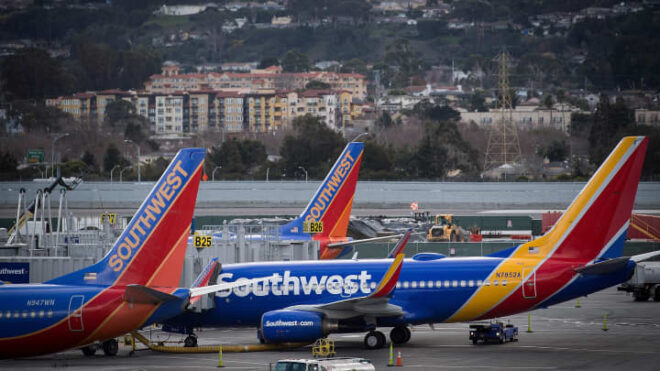
Southwest Airlines CEO Warns of Potential Mechanic Strike: What It Means for Travelers
Southwest Airlines is facing a significant challenge as tensions rise between the company and its mechanics. CEO Bob Jordan recently raised concerns over a potential mechanic strike, which could have far-reaching consequences for the airline and its passengers. As negotiations with the Aircraft Mechanics Fraternal Association (AMFA) continue, the possibility of a work stoppage looms large, threatening to disrupt operations and impact travelers nationwide.
Background of the Dispute
The dispute between Southwest Airlines and its mechanics is not new. For years, the airline and the AMFA have been in negotiations over contracts, wages, and working conditions. Mechanics play a crucial role in ensuring the safety and efficiency of Southwest’s fleet, and their demands for better compensation and job security have been ongoing.
Southwest, one of the largest low-cost carriers in the U.S., has faced increasing operational challenges, including maintenance delays, flight cancellations, and rising costs. The mechanics’ union argues that their members have been working under unfair conditions and deserve higher wages and better job protections. The airline, on the other hand, contends that meeting all the union’s demands could negatively impact the company’s financial stability.
CEO’s Warning and Response
Bob Jordan’s statement regarding a potential strike signals the seriousness of the situation. In a company-wide memo, Jordan acknowledged the importance of mechanics in Southwest’s operations but warned that a work stoppage could be detrimental to both the airline and its customers. He urged the union to return to the negotiating table and work toward a resolution that benefits both sides.
“We highly value our mechanics and the work they do to keep our aircraft flying safely,” Jordan said. “However, a strike at this critical time could lead to massive disruptions, something we hope to avoid through constructive dialogue.”
The AMFA, in response, has stated that they are willing to negotiate but will not back down from their demands for fair compensation and improved working conditions. The union has accused Southwest of delaying negotiations and failing to address key concerns that have been raised over the past few years.
Potential Impact on Passengers
A mechanic strike at Southwest Airlines could have significant consequences for passengers. Given the essential role that mechanics play in aircraft maintenance and safety checks, a work stoppage could lead to:
Flight Cancellations: Southwest may be forced to cancel flights if there aren’t enough qualified mechanics to maintain its fleet.
Delays: Even if flights aren’t canceled outright, delays could become more frequent due to a lack of sufficient maintenance staff.
Higher Ticket Prices: If operations slow down, Southwest might need to adjust fares to offset losses, leading to higher ticket prices for travelers.
Customer Frustration: With potential disruptions, Southwest could see a rise in customer dissatisfaction, impacting its reputation and customer loyalty.
For travelers who have already booked flights with Southwest, the uncertainty surrounding a potential strike is concerning. Many customers rely on the airline for affordable travel, and any disruption could create major inconveniences, especially for those traveling for business or personal emergencies.
Legal and Regulatory Considerations
In the United States, airline labor disputes are governed by the Railway Labor Act (RLA), which imposes strict rules regarding strikes in the airline industry. Under the RLA, both the airline and the union must undergo mediation with the National Mediation Board (NMB) before any strike action can be legally taken. If mediation fails, a mandatory 30-day cooling-off period is required before a strike can proceed.
Given these legal requirements, it’s unlikely that mechanics would be able to strike immediately. However, if negotiations continue to stall and the NMB determines that further mediation is futile, a strike could become a reality within months.
Southwest’s History with Labor Disputes
Southwest Airlines has a history of labor disputes with various employee groups, including pilots and flight attendants. In 2019, a similar dispute between the airline and its mechanics led to a temporary slowdown, causing operational disruptions and flight delays. That conflict was eventually resolved through a negotiated agreement, but it highlighted the persistent tensions between Southwest and its workforce.
More recently, the airline has also faced challenges related to the COVID-19 pandemic, including staffing shortages and operational inefficiencies. With travel demand rebounding, Southwest is under pressure to maintain smooth operations and avoid labor disputes that could further complicate its recovery.
What Comes Next?
The outcome of the ongoing negotiations will determine the next steps in this dispute. If Southwest and the AMFA reach an agreement, the airline could avoid a strike and continue normal operations. However, if talks break down, the situation could escalate, leading to legal proceedings and possible government intervention.
Passengers concerned about potential disruptions should keep an eye on updates from Southwest and consider alternative travel options if necessary. Flexibility in travel plans, such as booking with refundable tickets or choosing alternative carriers, may help mitigate potential issues.
Conclusion
The warning from Southwest Airlines’ CEO about a potential mechanic strike underscores the challenges the airline industry faces in balancing labor relations and operational efficiency. While Southwest has expressed a willingness to negotiate, the mechanics’ union remains firm in its stance for fair wages and better working conditions.
As the situation unfolds, both Southwest and its passengers must prepare for possible disruptions. Whether through negotiations or regulatory intervention, finding a resolution that benefits both employees and the airline will be crucial to maintaining Southwest’s reputation as a reliable low-cost carrier. For now, travelers should stay informed and be ready to adjust their plans should a strike become imminent.